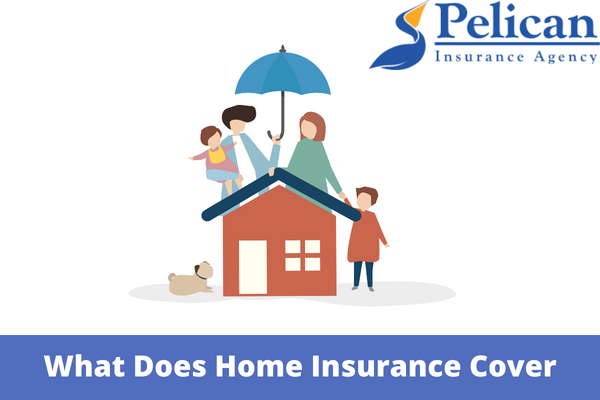What Does Home Insurance Cover

The cost of homeowners insurance depends on several variables, such as the types of coverage you buy, the value of your home and its contents, and the deductibles you choose. Additional coverage or higher coverage limits may incur additional costs. An agent can assist you in selecting the coverages that are best suited to your needs and determine whether you are eligible for any policy discounts.
In this article, we’ll explain what homeowners insurance covers and when it may be appropriate for you to purchase this type of coverage.
Home Security
Coverage for the structure of your home is called “dwelling protection,” and it is a standard feature of any homeowner’s insurance policy (e.g., the foundation, walls, and roof). Dwelling protection may also help protect against certain risks in other structures attached to the home, such as a garage or a deck.
Personal Property Security
Homeowners insurance does more than just protect your property. It may also cover the personal belongings you keep within it. Assume your electronics are stolen or your furniture is damaged in a fire. If your belongings are damaged or destroyed due to a covered risk, personal property insurance may pay to repair or replace them. Many insurers provide optional coverages that can help protect your belongings even further. For example, you may be able to purchase extended coverage for items with values greater than your property coverage limits, such as jewelry, watches, and furs.
Liability Insurance
A typical homeowners insurance policy includes liability coverage if someone who does not live with you is injured on your property. Assume a visitor trips on your cracked porch step. Bodily injury liability insurance can help cover the cost of legal representation or medical care for a visit if you are found legally responsible for the injury. A personal umbrella policy may allow you to increase your liability coverage limits. Your agent can explain the various options available to you.
Other Structures
Most homeowners insurance policies cover other structures on your property that are separate from your home, such as a detached garage, tool shed, or fence.
Coverage Limits And Deductibles
Remember that each home insurance policy coverage has a limit — the most your policy will pay toward a covered loss. You may be able to adjust your policy’s maximum payout to reflect the actual cash value of your home and possessions in the event of damage or destruction from a covered risk, as well as the cost of making necessary repairs. A deductible must be met before insurance benefits can be used to offset a loss. To review your coverage limits and deductibles, read your policy or contact your agent. They are usually adaptable to your needs.
Takeaway
If the unexpected happens, the protections provided by a homeowners insurance policy can act as a safety net. A local agent can assist you in determining the types of coverage and limits appropriate for you. At Pelican Insurance Agency, we can help you understand your options and ensure your policy meets your needs. With the right coverage, a home is a haven that protects your most valuable possessions. Call us today to get started.